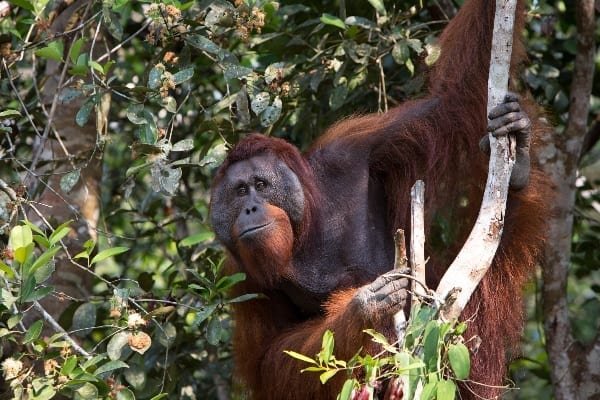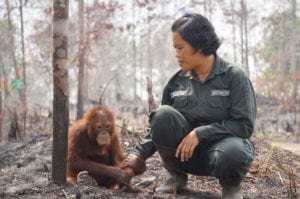Through a process we call Radical Listening, we asked rainforest communities what the solutions were so that they could stop logging.
Across 400 hours of listening, we heard that in order to stop logging, the community needed access to affordable, quality healthcare and training in sustainable agriculture.
We collaborated with the communities to provide these solutions as they designed a planetary health approach – linking their health, household economy, occupation and rainforest – and created the beginnings of a restorative economy.
Joining the dots
At Health In Harmony, every single aspect of our approach to health is an integrated one. For example, patients can always access care without logging. We do this by allowing payment with barter like seedlings that we use for reforestation, thereby further improving community health.
We also give healthcare discounts to villages that stop or decrease logging (imagine healthcare discounts throughout the world based on your carbon footprint).
There is an organic garden behind our medical centre where people can work to pay for care or learn new skills, and the healthy food feeds staff and patients.
Education in sustainable livelihoods, health and conservation happens in the communities as well. We even buy chainsaws and offer angel investing to previous loggers so they can start new small businesses. With this approach, economies, humans and the natural world all thrive together.
Motivation to act
In the first 10 years of our work around Gunung Palung National Park, logging households dropped 90%, infant mortality declined 67%, the loss of primary forest was stabilised and 52,000 acres of logged forest grew back.
To date, their actions have kept approximately 53 million USD worth of forest carbon out of Earth’s atmosphere – an important contribution to curbing the climate crisis, which we are now replicating with rainforest communities around the world.
I cannot help wondering if we were doing this kind of planetary health approach in all our systems, would this coronavirus pandemic have happened? Or might we have been a bit more resilient to its effects?
What might the world look like if we reinvented many aspects of our systems toward a regenerative economy the way Health In Harmony has in rainforest communities?
This pandemic is giving us the opportunity to understand in our bones how interconnected we all are, and how powerfully we can act when motivated to do so.
 Play Video about This Rock Might Just Save The World
Play Video about This Rock Might Just Save The World Play Video about Play 2 hours of rock
Play Video about Play 2 hours of rock Play Video about Play 2 hours of brook
Play Video about Play 2 hours of brook Play Video about Play 2 hours of sheep
Play Video about Play 2 hours of sheep















































